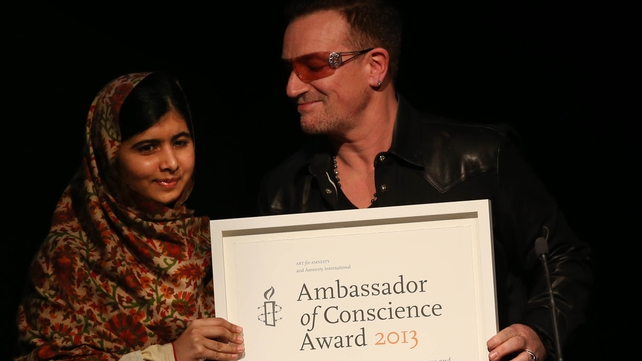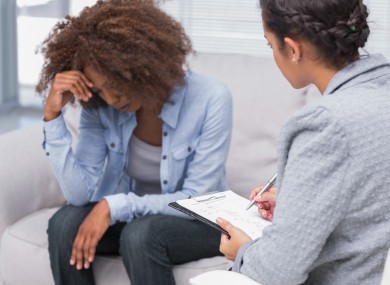Irish lending Banks ‘pushing homeowners into arrears’
IRISH BANKS ARE PUSHING STRUGGLING HOMEOWNERS INTO ARREARS BY HIKING VARIABLE MORTGAGE RATES.
Bankers denied to TDs and senators earlier this month that they were using higher variable rates to compensate for the fact that thousands of people are not paying their mortgages. But a Central Bank study found banks are making up for losses – caused by high levels of arrears – by hiking variable rates.
There is evidence that “higher interest rates can increase arrears”, according to the study entitled ‘Variable mortgage rate pricing in Ireland’.
The logic of hiking variables that push some borrowers into arrears is that most of those with variables are older, and have paid off most of their mortgage, the study makes clear.
Lenders are also charging higher variable rates to make up for losses from trackers.
“Banks with higher arrears rates exhibit higher variable mortgage rates,” the paper by Jean Goggin and four other economists found. “Changes in the rate of mortgage arrears also drive changes in variable rates.”
PRESSURE: Some 300,000 homeowners have variable rates, with interest rates that are 2pc higher than those on trackers.
This means that someone with a €300,000 standard variable rate is paying €300 a month more than someone with the same tracker rate.
The new findings came as regulators have ramped up pressure on banks to deal with the mortgage arrears crisis. Six of the main mortgage lenders have been told to conclude deals with at least one-in-six of those in arrears by the end of the year.
Up to now, banks have been told to help homeowners, but now the Central Bank has moved to the next phase and set targets for concluded deals.
The new targets have been put in place after talks between regulators and the bailout troika of the EU, IMF and European Central Bank.
By March next year, lenders will have to have in place “concluded solutions” with a quarter of those who are behind.
Close to 100,000 homeowners are now at least three months behind onpayments.
“The Central Bank, in agreement with the troika, has now set its expectations of the banks in this regard and requires banks to have concluded arrangements with 15pc of their over 90-day mortgage arrears customers by end of December 2013,” the regulatory body said yesterday.
Banks have already been set targets to make offers of long-term solutions.
By the end of this year, half of those in arrears must get an offer of a sustainable solution.
And 70pc in arrears must now get an offer by next March.
Banks recently revealed that they are counting letters threatening repossession as offers of “sustainable solutions” as part of the Central Bank targets.
They said they have clearance from the regulators to do this.
AIB, Bank of Ireland, Ulster Bank and Permanent TSB have sent 15,000 legal letters threatening repossession.
Malala Yousfzai receives amnesty award inspired by Seamus Heaney
BONO MAKES PRESENTATION IN DUBLIN
ALALA Yousfzai, the teenage girl who was shot in the head by the Taliban, is being presented with a humanitarian award by Bono at a ceremony in Dublin this evening.
The 16-year-old Pakistani education activist, who survived the gun attack last October, is being named Amnesty International Ambassador of Conscience.
She is following in the footsteps ofNelson Mandela and Burmese opposition leader Aung San Suu Kyias a recipient of the honour.
Malala’s award comes just a month after she was presented with the Tipperary Peace Prize.
The ceremony is being attended by an illustrious gathering of guests at the Mansion House this evening, including Pink Floyd star Roger Waters, who performs at the Aviva Stadium tomorrow night.
Malala said:”I am truly honoured and would like to take the opportunity to remind everyone that there are many millions of children like me across the world who fight every single day for their right to go to school.
“I hope that by working together we will one day realise our dream of education for every child, in every corner of the world.”
The 16-year-old schoolgirl had been targeted by the Taliban after campaigning for girls’ right to attend school.
The American singer Harry Belafonte was given the same award at the ceremony for his work on human rights and social justice.
The award was inspired by the poem, From the Republic of Conscience, written for Amnesty by the late Seamus Heaney.
The Nobel laureate, who died last month, had been due to attend the ceremony and read the poem.
British cosmologist Hawking backs right to assisted suicide


Marie Fleming (59) is in the final stages of Multiple Sclerosis and has said her long-term partner Tom Curran is willing to help her take her own life but she failed in a high court action to make it legal.
BRITISH COSMOLOGIST STEPHEN HAWKING HAS BACKED THE RIGHT FOR PEOPLE WHO ARE TERMINALLY ILL TO CHOOSE TO END THEIR LIVES AND TO RECEIVE HELP TO DO SO AS LONG AS SAFEGUARDS ARE IN PLACE.
The wheelchair-bound Hawking was diagnosed with motor neurone disease aged 21 and told he had two to three years to live. Now 71, he is one of the world’s leading scientists, known especially for his work on black holes and as author of the international bestseller “A Brief History of Time”.
Speaking ahead of the release of a documentary about his life this week, Hawking said he backed the right to die but only if the person involved had chosen that route.
He recalled how he was once put on a life support machine after suffering pneumonia and his wife was given the option of switching off the machine but this is not something he wanted.
“I think those who have a terminal illness and are in great pain should have the right to choose to end their lives, and those who help them should be free from prosecution,” Hawking told the BBC.
“There must be safeguards that the person concerned genuinely wants to end their life and are not being pressurized into it or have it done without their knowledge and consent as would have been the case with me.”
Assisted suicide is illegal in Britain and the issue of whether or not to decriminalize it for people whose lives are unbearable is a matter of debate in many countries.
Right-to-die advocates say people capable of making that decision should be allowed to die with dignity. Opponents say liberalizing the law could leave vulnerable people at risk.
Switzerland and several U.S. states are among places where some forms of euthanasia or assisted suicide are legal under certain circumstances.
Hawking, who has made guest appearances in TV shows such as The Simpsons and Star Trek, says his active mind and sense of humor are key to his survival.
Hawking communicates via a cheek muscle linked to a sensor and computerized voice system. He urged anyone with a disability to focus on what they can do and not regret what they cannot do.
“Theoretical physics is one field where being disabled is not a handicap. It is all in the mind,” said the scientist, who works at Cambridge University.
Nearly half of Irish people believe social media is harmful for mental health,
A survey finds
Vast majority believe depression and mental health issues on the rise, according to study
Most people believe modern technology and social media are detrimental to the health of young people, according to a new survey.
This sentiment is particularly felt in households with children under 16, with 45 per cent “strongly agreeing” that social media are harmful, according to this year’s PfizerHealth Index.
The survey reveals the perceived impact the recession is having on people’s health, with 90 per cent of respondents agreeing that depression, anxiety and mental health issues have increased since the recession.
When asked in what ways depression or mental health issues have affected people or their families, reduced finances and not being able to work were the most frequent responses. Over one-third of people said these problems had caused divisions in the family and 34 per cent said it caused other physical illnesses. One-quarter of those surveyed referred to relationship or marital difficulties.
Now in its eighth year, the index tracks changes in relation to private health insurance and medical cards annually. The number of people with health insurance has dropped from 44 per cent in 2010 to 34 per cent this year. The increase in medical cards seen in recent years has tailed off and now stands at 41 per cent, the same as in 2011.
The number of people with no medical cover now stands at 950,000, or 27 per cent of the population, the highest since this figure was included in the survey four years ago.
Paul Reid, managing director of Pfizer Healthcare, said the increase in people with no health insurance or medical card cover was a concern. “This is of enormous public and personal significance, as an increasing number of people are vulnerable at times of ill health and sickness and the continued decline in private insurance increases pressure on public health expenditure,” he said.
Speaking at the launch of the index, Kilkenny hurler DJ Carey discussed his own health experience. “Despite being physically healthy for years as part of the senior Kilkenny hurling team, I experienced some health scares of my own last year and no doubt the stress and pressure that I was under at the time contributed to them. Thankfully I was treated successfully for both conditions and I’m feeling great today but I can’t emphasise enough how important it is to look after your health, and in particular your mental health.”
The basic sample for the survey released by the pharmaceutical company is 1,003 adults aged and over. Pfizer said the sample was quota controlled to ensure a precise representation of the adult population. The questionnaire is included on one of Behaviour & Attitudes’ fortnightly barometer surveys,
Autumn Fall is a great time to soak up sunshine for your Health


The power of the sun for health and healing are far reaching. Optimal times to store up on the sun’s health benefits are between 10am and 3pm. Overwhelming research shows that sunlight improves mood, athletic performance, blood pressure, immunity and bone health while helping to prevent cancers, heart disease and autoimmune disorders.
Humans cannot survive without the sun. They have evolved to absorb the sunrays needed according to their proximity to the sun.
Absorbing UVB rays between noon and 2pm is the most optimal for gaining the beneficial vitamin D needed for so many health benefits. The amount of time needed depends on one’s proximity to the sun and skin type. If one obtains the sunlight needed between May and October, the body can utilize stored vitamin D throughout the winter months, when most countries’ latitudes are too far from the sun to absorb any more healthy sun rays.
The sun has proven to be beneficial against almost every disease process known to man. Studies show sun exposure and vitamin D increases muscle mass and strength. Research demonstrates that repeated UVB exposure is equally effective to medications in reducing high blood pressure. The sun creates endorphins in the skin correlated with positive mood, explaining why sunning feels so good.
Risk of heart disease, auto-immune disorders and the major cancers are reduced by increased sun exposure times. Research is beginning to explore the health role of photoisomers, components related to vitamin D and created by the sun, which cannot be obtained through supplementation.
Humans have long depended on sunlight for survival and have evolved as needed.
While supplementing with vitamin D can improve health and is often beneficial and necessary, there is no real substitute for direct sunlight on the skin. Sunscreens with a sun protection factor (SPF) of 8 or higher essentially block the formation of vitamin D, so direct exposure of skin to the sun without sunscreen is essential to reap the sun’s many health benefits.
Humans have long worshiped the sun and have understood its many health benefits. See http://www.naturalnews.com. Individuals have evolved to obtain the necessary amounts of sunlight needed for survival, dependent on distance from the sun.
African Americans, with their dark skin pigmentation, which serves as a natural sunscreen, require longer periods in the intense sunlight provided close to the equator to obtain optimal health. In contrast, the fair skinned individuals of Ireland have evolved to obtain ideal amounts of sun from the often cloudy days with indirect sunlight common to that country.






No comments:
Post a Comment